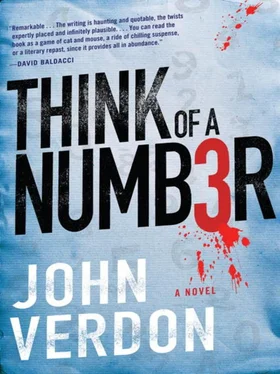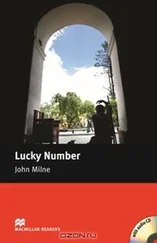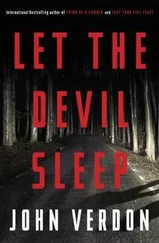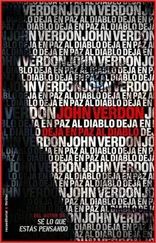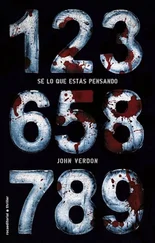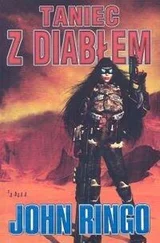Again the captain’s frustration seemed about to burst open, but Hardwick spoke first, picking up where Gurney had left off.
“So we sent the evidence team out there to this weird-ass little cottage that’s decorated like a shrine to The Wizard of Oz . They go over it-inside, outside, upside down-and what do they find? Zip. Nada. Not a goddamn thing. Not a hair, not a smudge, not one iota that would tell you a human being had ever been in the room. Team leader couldn’t believe it. She called me, told me there wasn’t a hint of a fingerprint in places where there are always fingerprints-desktops, countertops, doorknobs, drawer pulls, window sashes, phones, shower handles, sink faucets, TV remotes, lamp switches, a dozen other places where you always find prints. Zilch. Not even one. Not even a partial. So I told her to dust everything-everything-walls, floors, the fucking ceiling. The conversation got a little testy, but I was persuasive. Then she starts calling me every half hour to tell me how she’s still not finding anything and how much of her precious time I’m wasting. But the third time she calls, there’s something different about her voice-it’s a little quieter. She tells me they found something.”
Rodriguez was too careful to let his disappointment show, but Gurney could feel it. Hardwick went on after a dramatic pause. “They found a word on the outside of the bathroom door. One word. Redrum.”
“What?” barked Rodriguez, not quite so careful about hiding his disbelief.
“ Redrum .” Hardwick repeated the word slowly, with a knowing look, as though it were the key to something.
“ Redrum? Like in the movie?” asked Blatt.
“Wait a second, wait a second,” said Rodriguez, blinking with frustration. “You’re telling me it took your evidence team, what, three, four hours to find a word written in plain sight on a door?”
“Not in plain sight,” said Hardwick. “He wrote it the same way he left the invisible messages for us on the notes to Mark Mellery. DUMB EVIL COPS. Remember?”
The captain’s only acknowledgment of the recollection was a silent stare.
“I saw that in the case file,” said Holdenfield. “Something about words he rubbed onto the backs of the notes with his own skin oil. Is that actually feasible?”
“No problem at all,” said Hardwick. “Fingerprints, in fact, are nothing but skin oil. He just utilized that resource for his own purpose. Maybe rubbed his fingers on his forehead to make them a little oilier. But it definitely worked then, and he did it again at The Laurels.”
“But we are talking about the redrum from the movie, right?” repeated Blatt.
“Movie? What movie? Why are we talking about a movie?” Rodriguez was blinking again.
“The Shining,” said Holdenfield with growing excitement. “A famous scene. The little boy writes the word redrum on a door in his mother’s bedroom.”
“Redrum is murder spelled backwards,” announced Blatt.
“God, it’s all so perfect!” said Holdenfield.
“I assume all this enthusiasm means we’ll have an arrest within the next twenty-four hours?” Rodriguez seemed to be straining for maximum sarcasm.
Gurney ignored him and addressed Holdenfield. “It’s interesting that he wanted to remind us of redrum from The Shining .”
Her eyes glittered. “The perfect word from the perfect movie.”
Kline, who for a long while had been observing the interplay at the table like a fan at one of his club’s squash matches, finally spoke up. “Okay, guys, it’s time to let me in on the secret. What the hell is so perfect?”
Holdenfield looked at Gurney. “You tell him about the word. I’ll tell him about the movie.”
“The word is backwards. It’s as simple as that. It’s been a theme since the beginning of the case. Just like the backwards trail of footprints in the snow. And, of course, it’s the word murder that’s backwards. He’s telling us we’ve got the whole case backwards. DUMB EVIL COPS.”
Kline fixed Holdenfield with his cross-examiner’s gaze. “You agree with that?”
“Basically, yes.”
“And the movie?”
“Ah, yes, the movie. I’ll try to be as concise as Detective Gurney.” She thought for a few moments, then spoke as if choosing each word carefully. “The movie is about a family in which a mother and son are terrorized by a crazy father. A father who happens to be an alcoholic with a history of violent binges.”
Rodriguez shook his head. “Are you telling us that some crazy, violent, alcoholic father is our killer?”
“Oh, no, no. Not the father. The son.”
“The son!?” Rodriguez’s expression was twisted into new extremes of incredulity.
As she continued, Holdenfield slipped into something close to her Mister Rogers voice. “I believe that the killer is telling us that he had a father like the father in The Shining . I believe he may be explaining himself to us.”
“Explaining himself?” Rodriguez’s voice was close to sputtering.
“Everyone wants to present himself on his own terms, Captain. I’m sure you encounter that all the time in your line of work. I certainly do. We all have a rationale for our own behavior, however bizarre it may be. Everyone wants to be recognized as justified, even the mentally disturbed-perhaps especially the mentally disturbed.”
This observation led to a general silence, which was eventually broken by Blatt.
“I’ve got a question. You’re a psychiatrist, right?”
“A consulting forensic psychologist.” Mister Rogers had morphed back into Sigourney Weaver.
“Right, whatever. You know how the mind works. So here’s the question. This guy knew what number someone would think of before they thought of it. How did he do that?”
“He didn’t.”
“He sure as hell did.”
“He appeared to do it. I assume you’re referring to the incidents I read about in the case file involving the numbers six fifty-eight and nineteen. But he didn’t actually do what you’re saying. It’s simply not possible to know in advance what number would occur to another individual in uncontrolled circumstances. Therefore he didn’t.”
“But the fact is that he did,” Blatt persisted.
“There’s at least one explanation,” said Gurney. He went on to outline the scenario that had occurred to him when Madeleine was calling him on her cell phone from their mailbox-namely, how the killer could have used a portable printer in his car to create the letter with the number nineteen in it after Mark Mellery had mentioned it on the phone.
Holdenfield looked impressed.
Blatt looked deflated-a sure sign, thought Gurney, that lurking somewhere in that crude brain and overexercised body was a romantic in love with the weird and impossible. But the deflation was only momentary.
“What about the six fifty-eight?” Blatt asked, his combative gaze flicking back and forth between Gurney and Holdenfield. “There was no phone call that time, just a letter. So how did he know Mellery would think of that number?”
“I don’t have an answer for that,” said Gurney, “but I have an odd little story that might help someone think of an answer.”
Rodriguez showed some impatience, but Kline leaned forward, and this demonstration of interest seemed to hold the captain in check.
“The other day I had a dream about my father,” Gurney began. He hesitated, involuntarily. His own voice sounded different to him. He heard in it an echo of the profound sadness the dream had generated in him. He saw Holdenfield looking at him curiously but not unpleasantly. He forced himself to continue. “After I woke up, I found myself thinking about a card trick my father used to do when we had people to the house for New Year’s and he’d had a few drinks, which always used to energize him. He’d fan out a deck and go around the room, asking three or four people to each pick a card. Then he’d narrow the focus down to one of those people and tell him to take a good look at the card he’d picked and put it back in the deck. Then he’d hand him the deck and tell him to shuffle it. After that he’d go into his mumbo-jumbo ‘mind-reading’ act, which could go on for another ten minutes, and it would finally end with him dramatically revealing the name of the card-which, of course, he knew from the moment it was picked.”
Читать дальше
